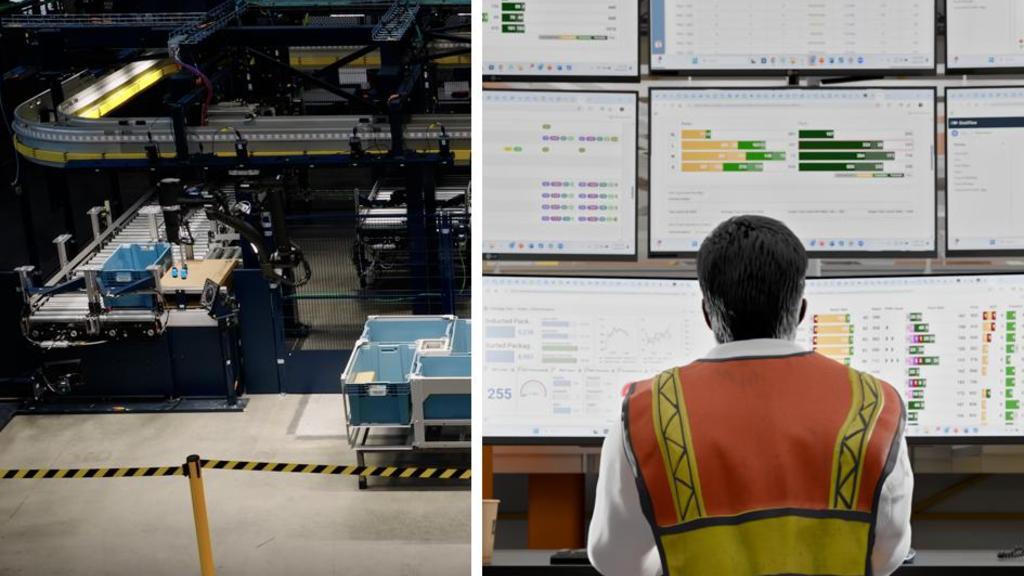
Amazon has unveiled two groundbreaking technologies, Blue Jay and Project Eluna, aimed at transforming warehouse management and delivery processes. The announcement occurred during the company’s Delivering the Future event held in Milpitas, California. Tye Brady, Amazon’s chief technologist, reassured stakeholders that Australia will not be overlooked in the rollout of these innovations, emphasizing a commitment to upskilling and technology deployment.
Both Blue Jay and Project Eluna represent Amazon’s ambitious strategy to enhance efficiency across its global operations. Blue Jay is designed to coordinate multiple robotic arms, acting as an “extra set of hands” for employees. It is capable of performing several tasks simultaneously, significantly streamlining warehouse operations. Meanwhile, Project Eluna functions as an autonomous AI model intended to reduce the cognitive load on warehouse managers by using historical and real-time data to streamline processes and anticipate potential bottlenecks.
Technological Advances and Global Implications
Brady explained that the transition from concept to implementation is a carefully orchestrated process. “We don’t do technology for technology’s sake,” he stated. “We ask: What’s the problem we’re trying to solve? Does it have utility? Will it be better for our employees? Will it be better for our customers?” The meticulous nature of this process is vital, particularly given the scale of Amazon’s operations, which involve shipping billions of packages annually. Brady noted that even a 1% error rate could result in 10 million exceptions, underscoring the need for precision.
Currently, Blue Jay is undergoing testing at an Amazon facility in South Carolina, where it can handle approximately 75% of the items stored there. Project Eluna will begin its pilot program at a fulfillment center in Tennessee, showcasing Amazon’s commitment to integrating advanced technology across its global network.
In Australia, Amazon has outlined a substantial $20 billion investment over the next four years to enhance its data infrastructure, particularly in Sydney and Melbourne. This initiative includes the development of three new solar farms in Victoria and Queensland, aimed at supporting local cloud infrastructure. Collectively, these projects are expected to generate enough electricity to power 290,000 Australian homes annually.
AI Adoption and Regulatory Landscape
A recent report from Strand Partners and Amazon Web Services (AWS) revealed that at least half of Australian businesses are currently utilizing some form of AI technology, marking a year-on-year growth of 16%. However, the survey indicated that 61% of larger businesses have only adopted AI at a basic level, focusing predominantly on incremental improvements rather than transformative changes.
The report highlighted a growing disparity between tech-driven start-ups and established enterprises, a phenomenon referred to as the “two-tier economy.” If unaddressed, this divide could hinder Australia’s potential for AI-driven growth and innovation. A significant 72% of surveyed businesses expressed the need for government support, such as tax incentives or grants, to facilitate broader AI adoption.
Currently, the Australian federal government is exploring regulatory frameworks to ensure the responsible use of AI technologies. These discussions include assessing whether AI systems should be classified as “high-risk,” particularly concerning their impact on human rights, health, safety, and broader societal implications. The Department of Industry, Science and Resources has already published guidelines to assist organizations in developing and deploying AI responsibly.
As Amazon continues to push the boundaries of technology, its efforts in Australia and beyond will be closely monitored. With a focus on enhancing operational efficiency while ensuring the welfare of employees, the company’s initiatives may set benchmarks for the future of the logistics and technology industries globally.







